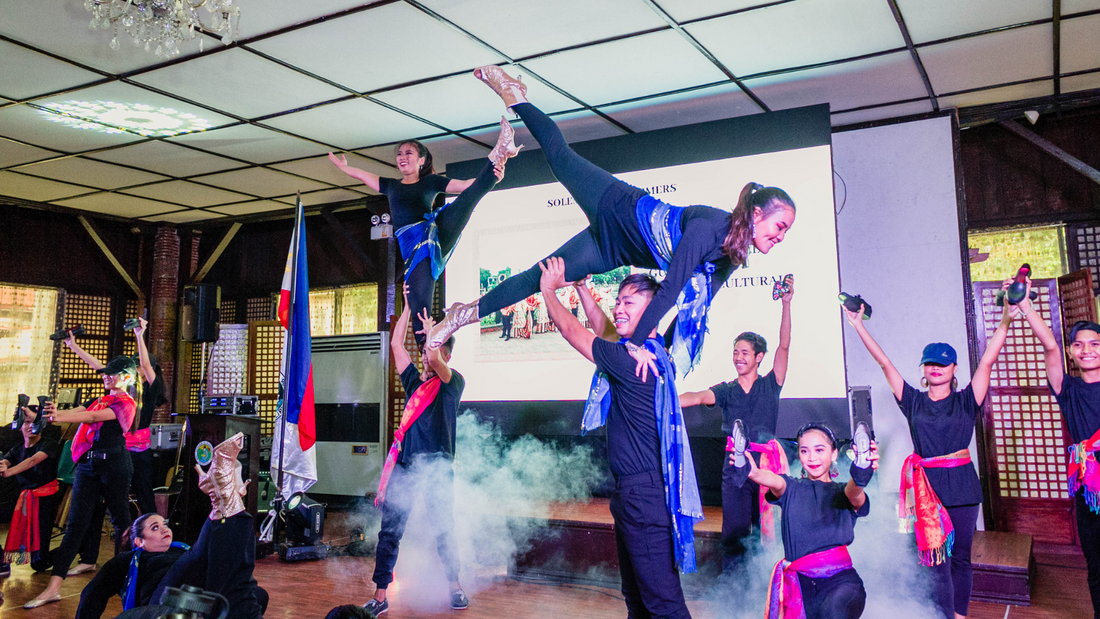With the hustle and bustle of the world today, it’s amusing to find a city that feels so much like a homely provincial escape in the middle of the metro. Clean, orderly, and sprinkled with delicious local delicacies, at the core of Marikina is our thriving craft industry that earned the city to be well known as the Philippine Shoe Capital. From large retailers and shoe manufacturers, to the little mom and pop shops selling handmade sandals outside their homes, it’s clear that we Marikenyos take pride in our shoemaking heritage.
The Marikina Shoe Industry has survived for over a century, peaking at its prime back in the 1960’s as one of the world’s top exporters of footwear and sustaining thousands of families since its founding. Shoes was the disruptor for the once agricultural municipality turned industrial city. In the last few decades though, this was not how the industry was perceived. As globalization grew, and importation into the market began to shake the local footwear landscape, many might have deemed the Philippine Shoe Capital as a “has-been”. Yet, our steadfast community still persevered to make shoes we can all be proud of, hoping that it will continue on to step into a brighter future.
The Coming Together of a Passionate Community
Held at the home of the Father of Filipino Shoemaking, Kapitan Moy on December 7, 2019; Solemates Connect welcomed hundreds of shoemakers, entrepreneurs, industry leaders, footwear enthusiasts, and multidisciplinary creatives from all over the Philippines to partake in the special gathering. The event featured a variety of topic presentations, forums, and panel discussions, that encompassed multiple aspects of the footwear industry’s current stature and how we can all help in building it up further.
The Developments since Solemates Connect
Four years since the symposium, plenty of developments have been conducted for the ben efit of the local shoe industry. In 2020, academic institutions such as Marikina Polytechnic College and Pamantasan ng Lungsod ng Marikina opened their doors to offer a Shoe Technology short course and a Bachelor of Science in Entrepreneurship degree that focuses on footwear and leather crafts. In addition to this, the Technical Education and Skills Development Authority (TESDA) National Certification for Shoemaking was also launched under the guidance of TESDA’s first national assessor for footwear, Ms. Cindy Tinao.
The Department of Trade and Industry has continuously provided support for the local shoe industry through multiple initiatives that have paved ways for the advancement of technology, manufacturing, design, and business; namely the Filipino Footwear Design Competition that earned the Philippines two international acclaims during the International Footwear Designers Competition in China in 2019 and 2023, OTOP Hub for Marikina Made Products in Ayala Feliz and Marikina City, the Metro Fiesta fair conducted annually to bring Filipino footwear to different parts of NCR, as well as multiple capacity building programs for shoe entrepreneurs. In 2022, DTI-NCRO set forth the Footwear Innovation Expo, an event that gathers stakeholders to showcase the progressions of the industry.
The local city government of Marikina has duly given a constant priority to its prized industry with assistive policies for local manufacturers as well as retail opportunities like the yearly Back-to-School Bazaar and Sapatos Festival. During and after the social and economic effects brought about by the CoVid-19 pandemic, Mayor Marcy Teodoro saw to it that Marikina shoe businesses were aided by providing welfare support for entrepreneurs and workers.
In 2022, the 18th Philippine Congress approved R.A. 11940: Creative Industries Act which mandates the promotion and development of local creative industries by strengthening the rights and capacities of creative firms, artists, artisans, indigenous cultural communities, and its other stakeholders. The Creative Industries Act supports the local footwear industry and has since propelled further public and private sector initiatives to uplift and sustain the craft community.
Beyond these are countless programs and proactive initiatives that have boosted the morale and economic growth of the Filipino shoe industry. Aside from the local market becoming increasingly inclined to support local and serve as ever-supportive patrons, many creatives have also joined the ranks to contribute to the industry’s progression as an innovative culturally-founded community that is globally competitive.
Sparking a conversation is a means to advocate for something that is dear to a hardworking community. Solemates Connect marked the beginning of a movement that led to how our community became more aware of the potential the industry has and how we can work together to make it prosper.
Read more about Solemates Connect by downloading the event summary here.

